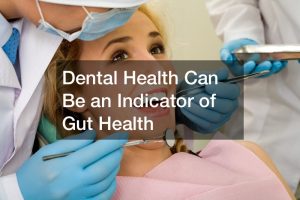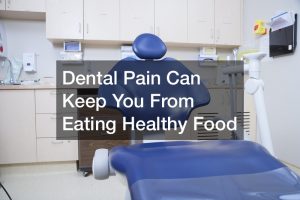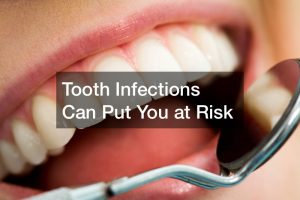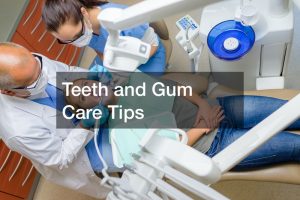We hope you enjoy this content. Just so you know, this website may collect a share of sales or other payment from any links, products, or videos on this page.
The content on this site is informational only, and is not intended to be professional advice. Please consult your attorney, doctor, or financial advisor before making any decisions.
Your mouth and teeth form a part of the digestive tract, connecting the outside environment to the inside of your body, so it stands to reason that whatever happens in your mouth will affect everything that is happening in the rest of your body. Having a healthy mouth and a beautiful smile is an asset to everyone.
When your teeth are in poor health, your overall well-being suffers because your mouth is an entry place to infectious microbes that enter your body through the oral mucosa. Doctors and medical researchers continuously find new links between chronic diseases and poor oral health. For example, a Korean health database recently has linked poor oral hygiene to the development of Type 2 diabetes. It is not surprising considering that the development of diabetes is linked to the chronic inflammatory state of your body, and infected teeth start inflammatory processes affecting the mucosa of the mouth, gums, and tooth tissue. Unchecked chronic inflammation in your body tissues directly increases insulin resistance and causes constriction of arteries, especially the heart arteries. Other conditions linked to poor oral health are endocarditis and cardiovascular disease, pregnancy complications, birth complications, and pneumonia.
Your dental care is crucial for keeping you healthy and happy. But how can we tell from the condition of our mouths what other diseases and chronic conditions are developing?

Dental Health Can Be an Indicator of Gut Health
The esophagus and stomach physically connect your mouth and the gut. The digestive tract is just one long, continuous tube starting at the mouth and ending with the anus. Therefore, it is easy for bacteria that are in the mouth to travel to your stomach and enter the small and large intestines, where they can multiply and cause inflammation of the intestinal mucosa. The reverse is also true. If you have unhealthy gut flora, the disease-causing bacteria can travel upwards from the intestines to the mouth. You may not be aware of the excessive bacterial count in your gut, but you will be wondering why your teeth are developing an excessive number of cavities all of a sudden.
A healthy immune system helps control the bacteria that live in your gut and mouth to ensure that they do not overgrow and cause infect other parts of the body. In fact, we need a certain amount of bacteria to be present in our gut to help digest our food, help absorb the nutrients, and even make some of the vitamins that the body needs, but it cannot synthesize those vitamins itself. The disease process starts only when conditions inside the body become more favorable for bacteria to grow out of control. Sometimes, it is difficult to judge when bacterial numbers are rising in the gut because there are no obvious symptoms. The only way you find out that all is not well with your digestive health is when you go for those physical exams at a doctor’s office. That is why it is so important to visit your doctor at least once a year, even when you don’t feel sick.
Keeping your teeth in good condition by visiting a dentist‘s office twice a year is also a good idea. Not only does having good dental care prevent the formation of carries (rotten teeth), but also the dentist can help you improve your gut bacterial biome.

Dental Pain Can Keep You From Eating Healthy Foods
Teeth help us chew and digest food, talk and pronounce sounds clearly, and help give our face its shape. A healthy smile can be a great asset, so it makes sense to take care of your teeth. Whenever you get a cavity in your tooth, you get a toothache. When the tooth is sore, you will avoid chewing on that side of the mouth so as not to cause any more irritation to your aching tooth. Healthy foods like meat and raw vegetables are hard to chew, and you will try to avoid eating them. We often replace the healthy with unhealthy, softer foods like bread, biscuits, or pizza. These foods are softer and easier to eat as they do not cause as much pain as chewing a healthy, hard carrot. But these carbohydrate-rich foods are loaded with sugars which the bacteria convert into acids that continue to attack the enamel and continue the decay process, leading to a vicious cycle that is difficult to break.
Tooth decay can be painful and lead to fillings, crowns, or inlays. If not treated, the nerve of the tooth can become infected and die. If gum disease is untreated, it could lead to bone loss in your jaw around the tooth, requiring tooth extraction.
Dental care has improved so much, and now dentists can do far more to save your teeth before they are pulled as a last resort. If you act in time, a visit to the dentist can save your teeth from getting pulled out. If the roots of your teeth are infected, a dental crown can be fitted by a periodontist. Even if your tooth cannot be saved and needs to be pulled, dental implants can be fitted and take the place of your tooth. Permanent dental implants look as good as natural teeth and prevent any jaw bone loss, stopping further damage.

Tooth Infections Can Put You at Risk
Tooth decay results from bacteria entering the soft pulp of the tooth. The bacteria usually enter the tooth when there is a crack in the tooth’s enamel, a dislodged filling has fallen out, exposing the soft tissue of the tooth, or you sustained a mouth or jaw injury. Once the bacteria start growing unchecked in your mouth, they will form an abscess after a few weeks or months. An abscess is a pocket of pus that builds up around the infected tooth. If an abscess is left untreated, the infection can spread to other parts of the body. Such untreated infection has the potential to kill you by causing potentially life-threatening complications. Usually, at this stage, you will end up going to the dentist because even though you have put it off this long, the pain from the infected tooth and an abscess are so severe that it forces you to seek help at the dentist offices.
These days death from tooth disease is rare due to an increase in personal hygiene standards and improved general dentists services. The field of dentistry has developed, and dentists can treat most dental abscesses with a root canal or tooth extraction. However, should the tooth infection progress beyond the abscess stage, the potentially life-threatening complications it can cause are as follows.
Due to the proximity, tooth decay can lead to a serious bacterial infection of the floor of the mouth, underneath the tongue. This condition is called Ludwig’s angina.
The main systemic complication caused by tooth infection is sepsis. That is a severe systemic reaction by the body in response to the toxic substances that bacteria produce and release into a person’s bloodstream.
Another serious infection that can be started by tooth decay is necrotizing fasciitis. It is a severe infection of the soft tissue where bacteria cause necrosis and death of body tissue it comes into contact. The treatment for stopping the spread of the infection usually is amputation of the affected tissue.
Tooth decay can also infect and cause inflammation of the mediastinum. Mediastinitis is the soft tissue inflammation in the space between your lungs and the heart.
Doctors have connected tooth decay as the cause of endocarditis. This complication involves the inflammation of the inner lining of the heart (endocardium) and can be life-threatening.
Sometimes, the multiplying bacteria in your mouth can cause cavernous sinus thrombosis, which is a blood clot in the sinus area, under the brain, and behind the eyes. This is a very serious infection that can easily spread to the brain tissue itself. If the bacteria reach the brain tissue, a brain abscess may develop. The collection of pus in the brain tissue is a very serious complication, and it will need to be drained surgically. As the pus collects in the pockets of the brain tissue, it puts pressure on the brain’s sensitive nerves, causing damage and death of the nerve cells. A brain abscess may lead to death.
As the bacteria spread throughout the body tissue, it has the ability to infiltrate bone tissue, causing osteomyelitis or bone tissue infection. Usually, osteomyelitis develops in the upper or lower jaw bone, nasal bones, or facial bones, but it can also infect bone in other areas of the body.

Teeth and Gum Care Tips
You can prevent tooth decay and gum disease by following a good tooth and gum care regimen.
You can start with brushing your teeth at least twice a day for two minutes with fluoride toothpaste. The fluoride from the toothpaste enters inside the tooth and kills present bacteria, ensuring that they do not grow out of control.
Floss your teeth at least once a day to remove food particles that are lodged between the teeth and under the gum line. If the food particles are not removed, they start to rot and provide a perfect medium for bacteria to grow and multiply.
To make sure you have removed as many potential bacteria from your mouth, finish off the brushing routine by rinsing your mouth with a mouth wash.
Make appointments to visit your dentist at least twice a year for a regular dental check-up. This way, the dentist will be able to catch any potential cavities before they get too big. Also, ensure that you visit your dental hygienist for a thorough tooth cleaning twice a year. A professional clean removes dental plaque and tartar buildup. Stopping bacteria grow in and around your teeth.
Improving the quality of your diet will also go a long way to maintaining your oral health. By following a good, balanced diet that includes fruits, vegetables, proteins, and good fats, you ensure a strong immune system that will keep the bacteria from overgrowing and causing disease. By cutting down the amount of sugary and starchy food you eat, you will reduce the number of cavities in your teeth. Choose nutritious foods like cheese, raw vegetables, plain yogurt, or fruit when you want to snack.
Foods That Cause Tooth Decay
Food and drinks you eat every day can be detrimental to the health of your teeth and mouth. All foods cause plaque, which is a soft, sticky substance filled with bacteria, and you need to brush your teeth regularly to remove as much of the plaque as possible. Suppose it is left clinging to the surface of your enamel. In that case, the bacteria present in plaque erode the tooth enamel by releasing acidic substances and enter inside the tooth, starting the decay process. Certain foods cause more plaque buildup in your mouth than others, and you should limit eating them.
Sour candies are one of the worst plaque producers. The sweets contain a lot of sugar, and they are soft and chewy and cling to your teeth for a longer period of time, exposing the tooth enamel to be attacked by providing a perfect substrate for the bacteria to multiply and making it easier for bacteria to break down the tooth enamel by coating it in acid. The ascorbic acid that the candies are coated with is very corrosive to the tooth enamel.
Bread is another food type that the oral bacteria love. It is a starchy food, and saliva breaks the starch into sugar. Also, as the bread mixes with saliva in your mouth, it makes a pasty substance as you chew it, perfect for sticking in the small openings and crevices between the teeth and providing a good growing substance for cavity causing bacteria.
Carbonated cool drinks and fruit juices are cavity eroders to a certain extent. Sugar-laden drinks enable plaque bacteria to produce even more acidic substances than usual, effectively coating your teeth in acid. That is why drinking large quantities of soda can hasten decay.
If you are faced with dental bills that you cannot afford, there might be an option for you. Jericho Share health insurance is a healthcare alternative for those who practice Christianity. Through Jericho Share, you will be able to afford your medical bills through the charity of their members, chipping the price down to a payment you can afford.
It is important to look after the health of your mouth and teeth. Not only are healthy teeth aesthetically pleasant, but a healthy mouth also ensures a person’s overall health and well-being. Modern dentistry can prevent and treat cavities so much better than in the past, so there is no real reason why everybody shouldn’t have healthy teeth.
